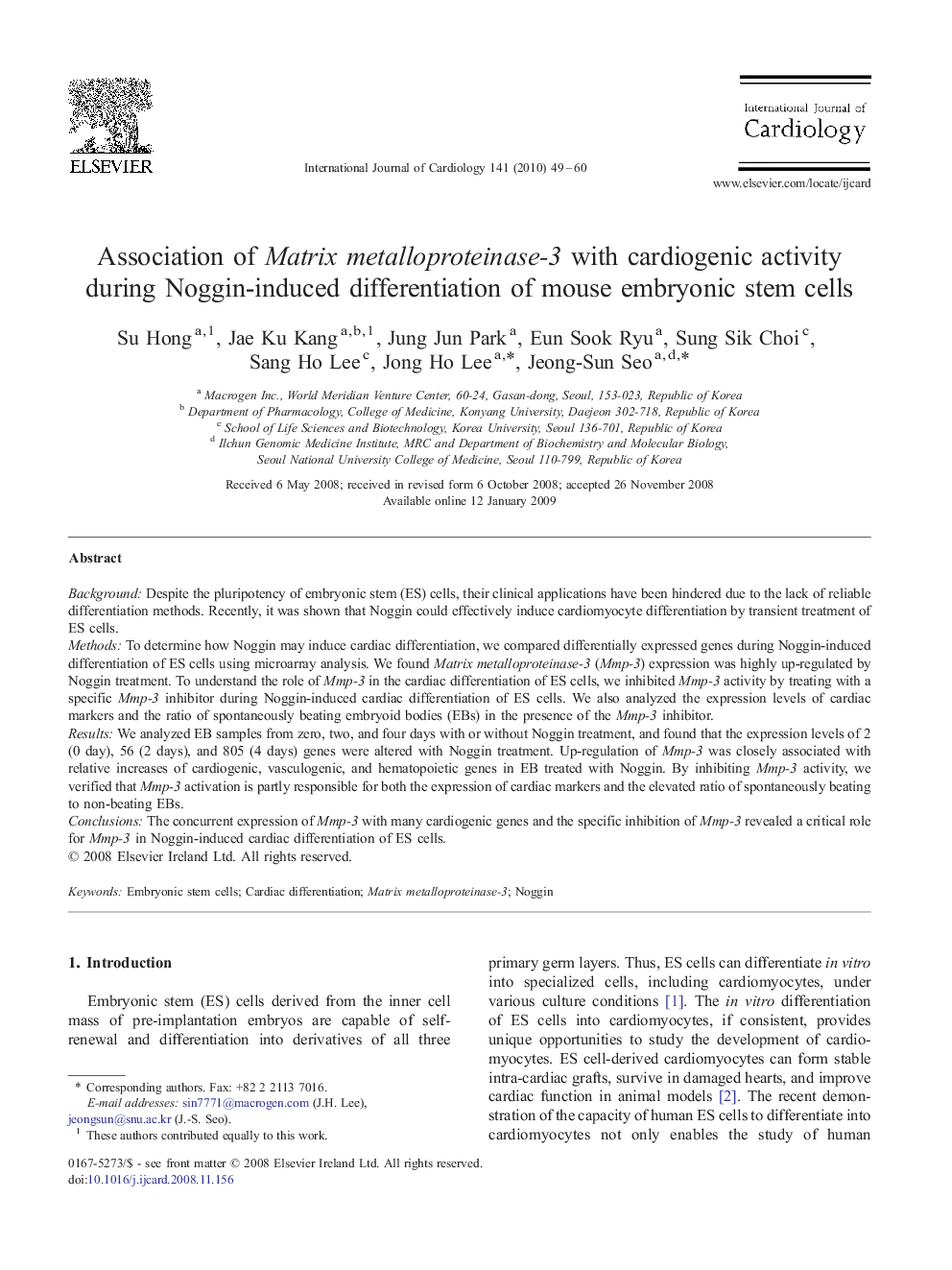| Article ID | Journal | Published Year | Pages | File Type |
|---|---|---|---|---|
| 2931994 | International Journal of Cardiology | 2010 | 12 Pages |
BackgroundDespite the pluripotency of embryonic stem (ES) cells, their clinical applications have been hindered due to the lack of reliable differentiation methods. Recently, it was shown that Noggin could effectively induce cardiomyocyte differentiation by transient treatment of ES cells.MethodsTo determine how Noggin may induce cardiac differentiation, we compared differentially expressed genes during Noggin-induced differentiation of ES cells using microarray analysis. We found Matrix metalloproteinase-3 (Mmp-3) expression was highly up-regulated by Noggin treatment. To understand the role of Mmp-3 in the cardiac differentiation of ES cells, we inhibited Mmp-3 activity by treating with a specific Mmp-3 inhibitor during Noggin-induced cardiac differentiation of ES cells. We also analyzed the expression levels of cardiac markers and the ratio of spontaneously beating embryoid bodies (EBs) in the presence of the Mmp-3 inhibitor.ResultsWe analyzed EB samples from zero, two, and four days with or without Noggin treatment, and found that the expression levels of 2 (0 day), 56 (2 days), and 805 (4 days) genes were altered with Noggin treatment. Up-regulation of Mmp-3 was closely associated with relative increases of cardiogenic, vasculogenic, and hematopoietic genes in EB treated with Noggin. By inhibiting Mmp-3 activity, we verified that Mmp-3 activation is partly responsible for both the expression of cardiac markers and the elevated ratio of spontaneously beating to non-beating EBs.ConclusionsThe concurrent expression of Mmp-3 with many cardiogenic genes and the specific inhibition of Mmp-3 revealed a critical role for Mmp-3 in Noggin-induced cardiac differentiation of ES cells.
